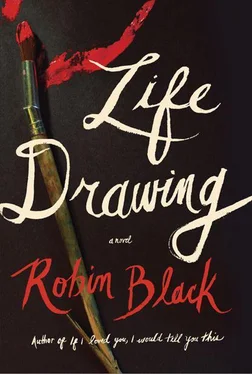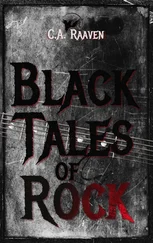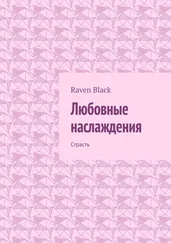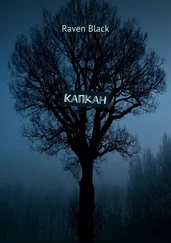A couple of times, I almost convinced myself it had happened. There was a student of his whose name seemed to come up too often. Victoria Feldman. And a little later there was a young woman, a girl really, who worked at a nearby coffee shop. I thought I could catch a little atmospheric hum around each of them. I had my hunches. But then, for whatever reasons, I changed my mind. Maybe he said Victoria Feldman was tedious , a word I knew he wouldn’t use about a woman he was taking to bed, not even to cover something up. Maybe I looked a little more closely at the coffee shop girl and realized he would be appalled by her age, closer to sixteen than I had thought. I don’t remember the details of how my mind first entangled, then disentangled him from these nonexistent liaisons, but the point is that I was always on alert.
When I was a teenager, long before any of this, my sisters and I used to play a game, just between ourselves, that consisted solely of muttering under our breath, there’s a nice little friend for you , whenever we saw a boy — or in my sister Jan’s case a girl. Most of the time it was said sarcastically: there’s a nice little friend for you , just as the most appalling skinhead cousin of the kid hosting the party walks in. Every once in a while, though, it was said appreciatively. There’s a nice little friend for you. No, seriously. By the door . We were always on the lookout. All teenagers are, I suppose. We were human periscopes, scanning, scanning. And the fact that there were three of us, close in age, meant that there was never a time when at least one pair of eyes wasn’t engaged.
The period between my affair and our move to the country was a bit like that. Is this her? Is this possible? There’s a nice little friend for you . I hope he doesn’t think so. I hope he doesn’t see her. I hope he does. I hope he never tells me. I hope he does. It was never far from my mind.
We could move out to the country now, you know .
As we always told the story, the idea came upon us both at once, as though we had acted on it without either of us having to speak the words aloud. But in fact I was the one who said it, sitting in a diner, dawdling over late night pie and coffee, trying to comprehend the degree to which our circumstances had changed with our newly copious bank account.
“We could move out to the country now, you know.”
This is Owen, on the day we moved in: He is pacing off the distance between the kitchen door of the house and the great doorway of the barn. Well over six feet tall, slender to the point of being skinny, as he places one heel to the front of the other foot’s toes, and again, and again, he looks single-legged and as though he will blow over with just a mild gust of wind. It is autumn, mid-October, and the greens of our first encounter with this land have dressed up in fancy costume, orange, scarlet, yellow, to welcome us. It is almost too much to take in, all the beauty. And this is why Owen is doing what he is doing, measuring this line — which there is no reason to measure. Because this is what Owen does when he is overwhelmed.
Watching from what is to be my studio, I know he doesn’t really need or even want to know how many lengths of his own feet it is from one building to the other. Except that it is a start. In this hurricane of incomprehensible loveliness, he begins with the ground, with his own feet on that ground. He begins with a count. And standing at the window, I remember how he first loved me, physically. What those earliest sexual moments were like when he counted the freckles on my belly, when he stretched his hand across my breasts, nipple to nipple, measuring my body with his own, so earnest, so strangely in his own head yet defined by the act of knowing me, all at once. It felt like a form of devotion I had never imagined, as he committed my body to his memory and so committed himself to me.
I could never match it, I was sure.
When he reaches the barn, his form relaxes. He turns and walks briskly, loosely, back to the house. He is still boyish at forty-eight. He is that boy with the just-too-long hair that falls into his face, wearing the sweater he must have borrowed from his dad. His limbs still seem as though he’ll grow into them, with time. As he nears, I see the earnestness on his face. He has solved a problem. He’ll move on now to the next one. Testing the depth of the pond. Or counting the steps to the basement. This, for him, is moving in, as for me painting walls and hanging pictures is. He is all about acquiring knowledge. I am all about recasting a place into what I want it to be.
These are the sorts of things you see when you step away. It doesn’t mean you’re right. It just means it’s what you see.

The basil I picked that day ended up on our kitchen table in a mason jar where it looked more than a little sad, and I went back into my studio, back to work.
It is typical of productive artistic periods for me that they have their origins in something beyond my control. (That’s true of the bad times too, of course, which is the hell of it — as Owen was daily experiencing.) My work that summer had started with a bathroom renovation we had finally gotten around to a few weeks before Alison’s arrival. The second-floor hall bathroom was a wreck. It had never been used much, so we’d always ignored it, but that winter the tiles had started popping off the walls and somehow that made the sagging ceiling intolerable. In May, we took a few bids, all of which were low. Nobody had enough work, everyone was cutting their profits. We went with the man who seemed most amiable, and before a week passed he had a crew there doing demolition.
I spent an irritated morning listening to the bangs and shattering, to the too-loud, blaring radio, and then around noon went up to ask if they needed anything for their lunch. Something caught my eye. A pile of old newspapers, twisted and crumpled, in my hall.
“What are those?”
“From when the house was built,” the contractor — Thad — told me. “People used those to insulate. Back in the day.”
The first thing I did was iron them. (Owen laughed because in all the years we’ve been together neither of us had ever ironed anything. The iron had come with the house, as had any number of such odds and ends.) It took me a long time. It took me far longer than it had to because I got caught in watching the way the faces, the images, and the words came clear. The crumples themselves were like a blurred focus that I could manipulate. And there was also, inevitably, a sensation of moving backward in time. Not only because the papers were old, but because the act of crumpling a newspaper is a strictly forward-moving act. It isn’t something one normally does, then undoes. The ironing process became all about restoration for me. Restoration, clarity. And then, also, loss. War. 1918. World War I. Crumpled newspapers with body counts. With surges of hope, documented. Defeats. Deaths and more deaths. Homecomings and more deaths.
I recrumpled some, to get the feel of doing that. Just the act of bringing the names of the slaughtered into focus and then obscuring them again; then back into focus. I began to jot notes about permanence and impermanence. I began to imagine the newspapers themselves in other forms. Things that could not be crumpled. Chiseled in stone. Etched into metal. I took one and burned it in a small copper bowl I had and saved the ashes. Why? I didn’t know why. I’d stopped thinking sensibly — which is not how projects usually begin for me. But from the beginning, this was different. This was about ideas, about intuitions, something intriguing me that I didn’t understand. And in the beginning, that felt right.
Читать дальше













